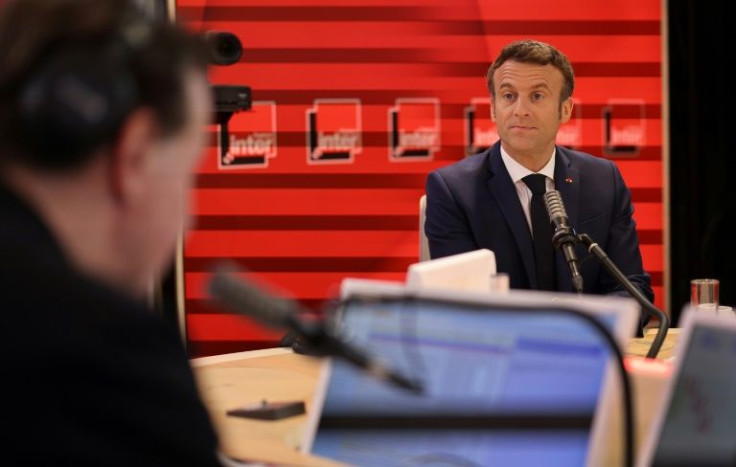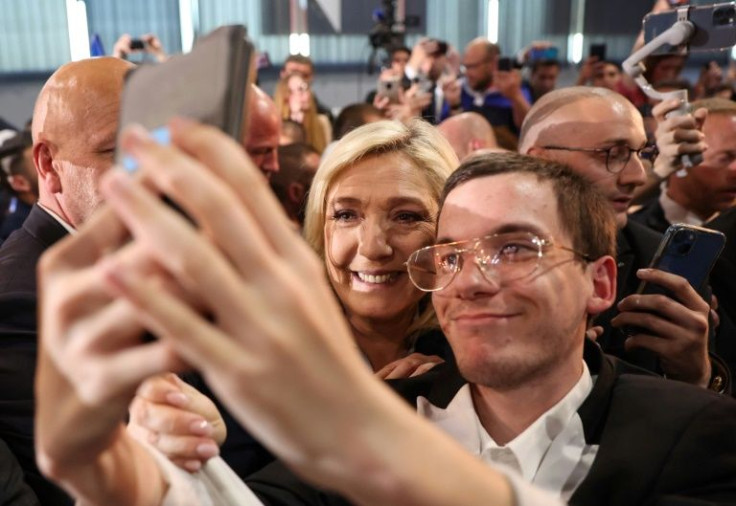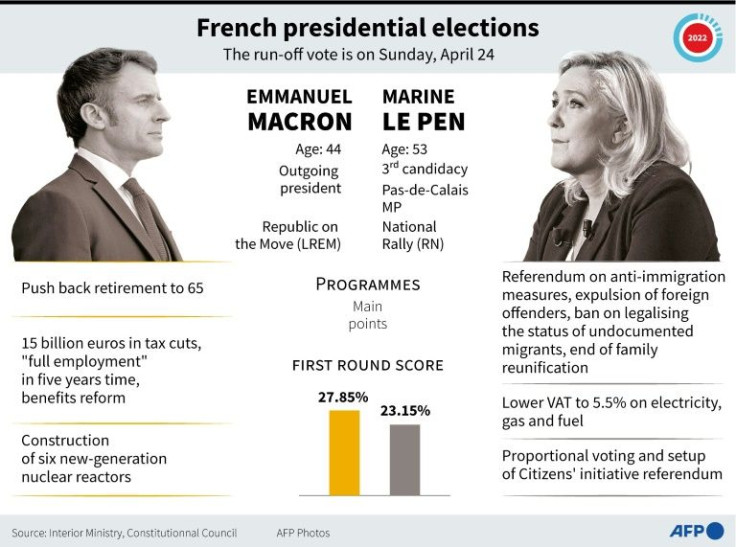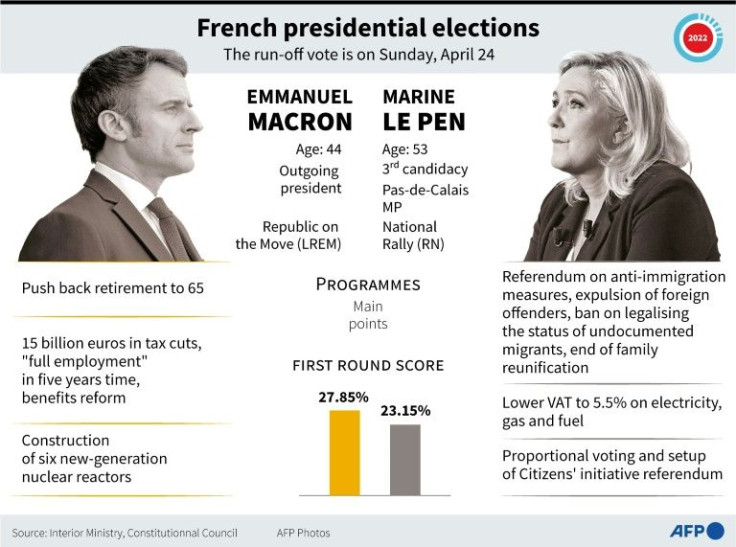Crunch Time For Macron, Le Pen Ahead Of Presidential Vote
French presidential hopefuls Emmanuel Macron and Marine Le Pen threw themselves into a final flurry of campaigning Friday, hoping to mobilise millions of hesitant voters before the weekend media blackout imposed for Sunday's run-off election.
Both candidates fired off attacks in interviews before last-minute walkabouts and rallies, with Le Pen insisting that opinion polls giving Macron the lead would be proved wrong.

"Polls aren't what decide an election," Le Pen, who is hoping to become France's first female president, said after posing for selfies in the northern Channel town of Etaples.
She again took aim at her rival's plan to push back the retirement age to 65 from 62, a reform the president put on ice after fierce protests two years ago.
"With Emmanuel Macron, the French are going to get a life sentence," she said Friday.

Macron for his part said Le Pen was trying to mask an authoritarian "extreme right" platform that stigmatises Muslims with a plan to outlaw headscarves in public, and to "abandon the founding texts of our Europe... that protect individuals, human rights and freedoms".
"Millions of our fellow citizens have moved toward her party and project because she gives the impression that she has an answer for the problem of purchasing power. But her answers aren't viable," he told France Inter radio.

Later in the day in Figeac in southern France, Macron told supporters that he expected them to "remain mobilised until the last second" because his victory was "not a done deal" even as the latest opinion polls predict his victory by a margin of 10 percentage points or more.
Le Pen meanwhile said that whatever the result of the election "I will have run the campaign that I wanted".
Starting at midnight, neither candidate will be allowed to give interviews, distribute flyers or hold campaign events until 8:00 pm (1800 GMT) on Sunday, when initial estimates of results start coming in.

Publishing opinion polls will also be banned under the French campaign rules aimed at limiting last-minute interference in voters' choices.
Analysts say abstention rates could reach 25 to 30 percent, in particular among left-wing voters unhappy with Macron's pro-business agenda, not least his tax cuts for businesses and the highest earners.
Far-left leader Jean-Luc Melenchon, who scored a close third-place finish in the first round vote on April 10, has pointedly refused to urge his millions of followers to block Le Pen by voting for the former investment banker.
"It's been eight months that I've been trying to pull people away from this abstentionism," Le Pen told CNews television.
"I want to be the president of harmony... who reconciles the people with their leaders."
Spring school vacations will also be in full swing across much of the country this weekend, increasing the chances that many voters won't cast ballots -- and adding a wildcard to the final outcome.
A highly anticipated TV debate between the two rivals on Wednesday has not appeared to change their momentum in the polls, with most showing intentions to vote for Macron at 53 to 56 percent against 44 to 47 for Le Pen.
If he wins, Macron would be the first French president to be re-elected since Jacques Chirac in 2002, when Marine Le Pen's father, Jean-Marie, rocked the political establishment by reaching the second-round run-off.
© Copyright AFP {{Year}}. All rights reserved.





















